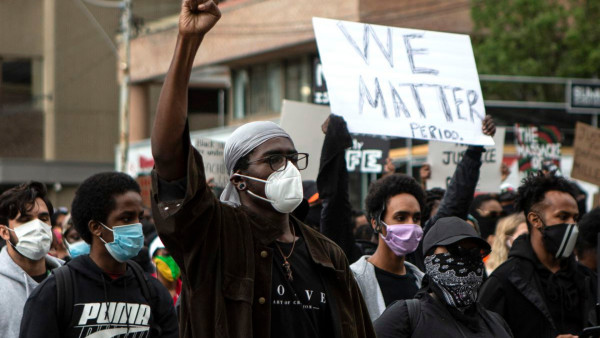On August 25, 2021, I appeared on the Globe and Mail podcast, the Decibel, to discuss the Nova Scotia Court of Appeal decision, R. v. Anderson, which held that Impact of Race and Culture Assessments (“IRCA”) should be used when sentencing Black accused persons in the province. IRCA reports are a valuable resource for sentencing judges as they provide information about the history of anti-Black racism, discrimination and its effects. For more context about IRCA reports and the Nova Scotia Court of Appeal decision, please see our article, “Why the Impact of Race Should Matter in Criminal Court.”
Recently, in R. v. Morris, the Ontario Court of Appeal came to a similar conclusion about the use of similar reports. In R. v. Morris, the police received a call from a man claiming that he had been the victim of a home invasion robbery by four Black men. Shortly after, the police officers came upon four Black males walking in a nearby parking lot. The accused, Kevin Morris (“Mr. Morris”), ran when he was approached by the officers. During the chase, Mr. Morris took his jacket off. After catching him, the police found an illegal, loaded firearm in Mr. Morris’s jacket. The police could not connect the four men to the robbery, but Mr. Morris was charged with several crimes for possessing an illegal firearm.
The Trial Decision
At the trial, the judge recognized that in some cases, consideration must be given to an individual's systemic and social circumstances, including systemic discrimination and historical injustice. This approach has been recognized in many cases by the criminal courts, particularly in cases with Indigenous offenders.
In this case, the trial judge considered two reports admitted by Mr. Morris’s lawyers; one dealing with anti-Black racism in Canadian society and the other with Mr. Morris’s particular social history. The report dealing with anti-Black racism was not an IRCA but was substantially similar in context and intent. The trial judge noted the importance of the reports in the case, not only to determine the blameworthiness of Mr. Morris’s actions but also to help determine the seriousness of the crimes in the application of principles of general deterrence and denunciation.
Utilizing the reports, the trial judge touched on overall systematic issues that have led to distrust between the police and Black men, as well as Mr. Morris’s individual past experience with the police, his mental health, the neighbourhood where he grew up, and his education. The trial judge also noted that Mr. Morris was attacked twice before this encounter (including being stabbed) and was suffering from post-traumatic stress disorder due to being raised in an environment where he lost close friends to violence. The trial judge found all of these circumstances, contributed to why Mr. Morris possessed a loaded gun and fled from the police officers.
In this case, the reports influenced the trial judge to lower the sentence from three years, which is typically ordered in similar gun-related cases, to fifteen months and eighteen months probation. The trial judge further reduced the sentence to twelve months after considering Charter violations.
The Ontario Court of Appeal Decision
The Crown appealed the trial judge’s decision, claiming that the sentence was unfit given that the trial judge allowed his consideration of the impact of institutional anti-Black racism on Mr. Morris to overwhelm all other considerations relevant to the sentence.
Sentencing is based on the principle of proportionality meaning, the punishment should match the seriousness of the crime. The purpose of sentencing is to maintain a just, peaceful, and safe society. The higher the level of intent to cause harm and the more harmful the potential or actual conduct, the more serious the crime and the higher the sentence.
The Court of Appeal did not agree with the trial judge’s sentence, claiming that it did not accurately reflect the seriousness of Mr. Morris’s crimes. Moreover, the Court of Appeal found that the gravity of Mr. Morris’s offences should not be diminished by the reports. Social context evidence is admitted to provide a background on the accused and to help explain why the offender committed the offence. Judges should not let society’s complicity in anti-Black racism discourage their authority to impose sentences. Instead, judges should acknowledge the systemic complicity and the fact that the sentencing process can foster that societal complicity.
The Court of Appeal agreed with the trial judge’s decision to admit and rely on the reports dealing with anti-Black racism in Canada and Mr. Morris’s particular background, as the reports provided the trial judge with the benefit of further understanding the effect of anti-Black racism in Canada and helped him understand why Mr. Morris held the firearm. The Court of Appeal acknowledged that reports such as these are not frequently used in Ontario, but can be used as mitigating factors to the sentencing judge when considering rehabilitation. The Court of Appeal encouraged the use of these reports, but unlike the IRCA reports in Nova Scotia, they are not required.
The Court of Appeal ordered Mr. Morris to a sentence of two years imprisonment, less one day and the time he already served, as well as probation for eighteen months.










